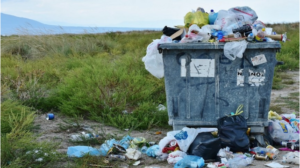
The Civil Aviation Authority (CAA) of Pakistan recently made it compulsory to get a plastic wrapping of all the checked-in luggage at the airport. The move is expected to protect the luggage of the travellers from being mismanaged when handlers have to swiftly move bags on and off planes. This was confirmed by Joint Director of Public Relations Mujtaba Baig.
While the move itself is very considerate, it is going against times that are in desperate need for a consideration for the climate.
This is not good news for our planet and the species that inhabit it. Pakistan produces a total of 30 million tons of solid waste. Out of this, nine percent are plastics. Almost 55 billion plastic bags are produced in the country and all of this waste is then dumped in open garbage dumps with no classification for recycling. The waste management mechanism in the country is thus inefficient in curbing the problem.
Another interesting fact, according to the research of the Science Magazine 2015, Pakistan is way ahead of India in terms of plastic waste. If India is producing 4.5 million tonnes of plastic waste per year, Pakistan is producing 6.4 million tonnes despite smaller land mass and population.

The KP government, Chief Minister Mahmood Khan to be precise, announced a crackdown against plastic production in the province earlier this year.
With such initiatives already in the run and the climate change ministry in place, the use of plastic in the country should see a decline rather than an increase. Each policy made by any department of the government will impact the topography of the region in years to come. There was an outcry on Twitter regarding the policy as well.
Ridiculous both for financial impact on people as well as environmental catastrophe. The entire world is reducing/stopping plastic usage for our planet & this decision of mandatory wrapping is an absolute disaster and must be reversed ASAP. The numbers for one week alone is ?♀️ https://t.co/mIHtWvH0aE
— Bakhtawar B-Zardari (@BakhtawarBZ) July 20, 2019
The government should respond to the criticism and take measures that will not sideline any environmental concerns.
What do you think of the recent decision? Let us know in the comments below!
cover image via bdacreative.com





